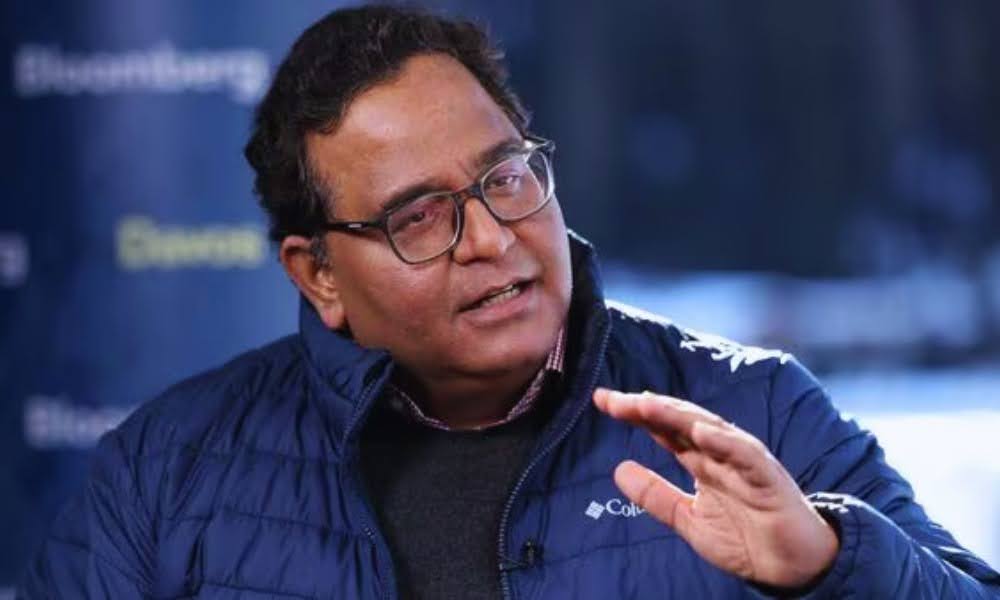Zoho’s Sridhar Vembu Criticizes Indian Software Industry’s Inefficiency, Calls for Fresh Thinking

Zoho founder and chief scientist Sridhar Vembu has voiced strong concerns about the state of India’s software and IT services industry, stating that it has become significantly inefficient over time.
In a post shared on April 18 on X, Vembu called for a complete reset in how the sector operates.
Inefficiencies Not a Recent Development, Says Vembu
According to Vembu, the inefficiencies in the software industry are not the result of recent disruptions like artificial intelligence or tariff-related uncertainties alone.
“My operating thesis is that what we are witnessing is not just a cyclical downturn and is not solely related to AI. Even without the uncertainty caused by tariffs, challenges were already on the horizon,” he wrote.
Vembu attributed these long-standing inefficiencies to the decades-long asset bubble in the global software sector.
He stressed that India, in particular, had adjusted to these issues, with the country’s economy and employment becoming overly dependent on the IT sector.
“Sadly, we adapted to a lot of those inefficiencies in India. Our jobs came to depend on them. The IT industry sucked in talent that may have gone into manufacturing or infrastructure (for example),” he explained.
Infosys Forecast Reflects Weak Industry Outlook
Vembu’s remarks come close on the heels of guidance from Infosys that projected a subdued revenue growth of 0 to 3 percent for FY2025-26.
Earlier in January, Infosys had revised its revenue forecast down to 4.5 to 5 percent, after lowering it to 3.75 to 4.5 percent in October.
India’s second-largest IT company also reported a 12 percent year-on-year decline in net profit for the fourth quarter, posting ₹7,033 crore—below the estimated ₹7,278 crore.
Meanwhile, consolidated revenue for the quarter rose to ₹40,925 crore, a 7.9 percent increase compared to last year.
“We are only at the early stages of a long reckoning,” Vembu added, stating that past trends will not serve as reliable indicators for the future.
“My thesis is that the last 30 years will not serve as a reliable guide for the next 30 years. We are genuinely at an inflection point. We have to challenge our assumptions and do fresh thinking.”
Industry-Wide Slowdown and Global Pressures
The Indian software sector, along with major IT firms, is currently battling soft discretionary spending and sluggish demand.
Recent statements by US President Donald Trump on halted tariffs have further contributed to this decline, impacting Indian IT exports.
Wipro has forecasted a revenue decline between -1.5 percent and -3.5 percent for the first quarter of FY2026, while TCS, India’s largest IT exporter, continues its policy of not issuing guidance.
Vembu’s analysis points to a structural shift in the global tech industry, not just temporary market turbulence.
Broader Implications for India’s Tech Workforce
Vembu highlighted that the inefficiencies in the software sector had absorbed a large chunk of India’s skilled workforce, often at the expense of more foundational sectors like manufacturing and infrastructure.
“The broader software industry has been quite inefficient, both in products and services. These inefficiencies have accumulated over decades of a prolonged asset bubble,” he stated.
His comments follow his decision to step down as CEO earlier this year to focus on research and development.
He reiterated that India’s IT sector needs to realign its strategies, cautioning that the current industry structure may no longer be sustainable.
“We are only in the early stages of a long reckoning. The last 30 years are not a good guidepost to the next 30 years. We are truly at an inflection point. We have to challenge our assumptions and do fresh thinking,” he wrote.
Online Reactions: Industry Model Questioned
Vembu’s post triggered varied reactions online. One user commented, “And we sacrificed and burnt generations of talent in the process to serve as a backdoor office to the global giants at the cost of India’s autonomy and leadership. Jugaad is inefficiency, not a path to cutting-edge innovation and digital sovereignty.”
Vembu responded, “I am sorry to have to agree with this. We have to deploy talent to solve our own problems.”
Others echoed his sentiments, arguing that India’s tech companies thrived on outsourcing but failed to invest in research, development, and product innovation.
“These technology companies in India that became mega companies due to outsourcing, never had a sustainable model in the first place,” a user remarked.
Another added, “A lot of IT + Tech jobs in India came from export of cheap US money in return for services. Those jobs produced little real value… a shakeout is coming.”








